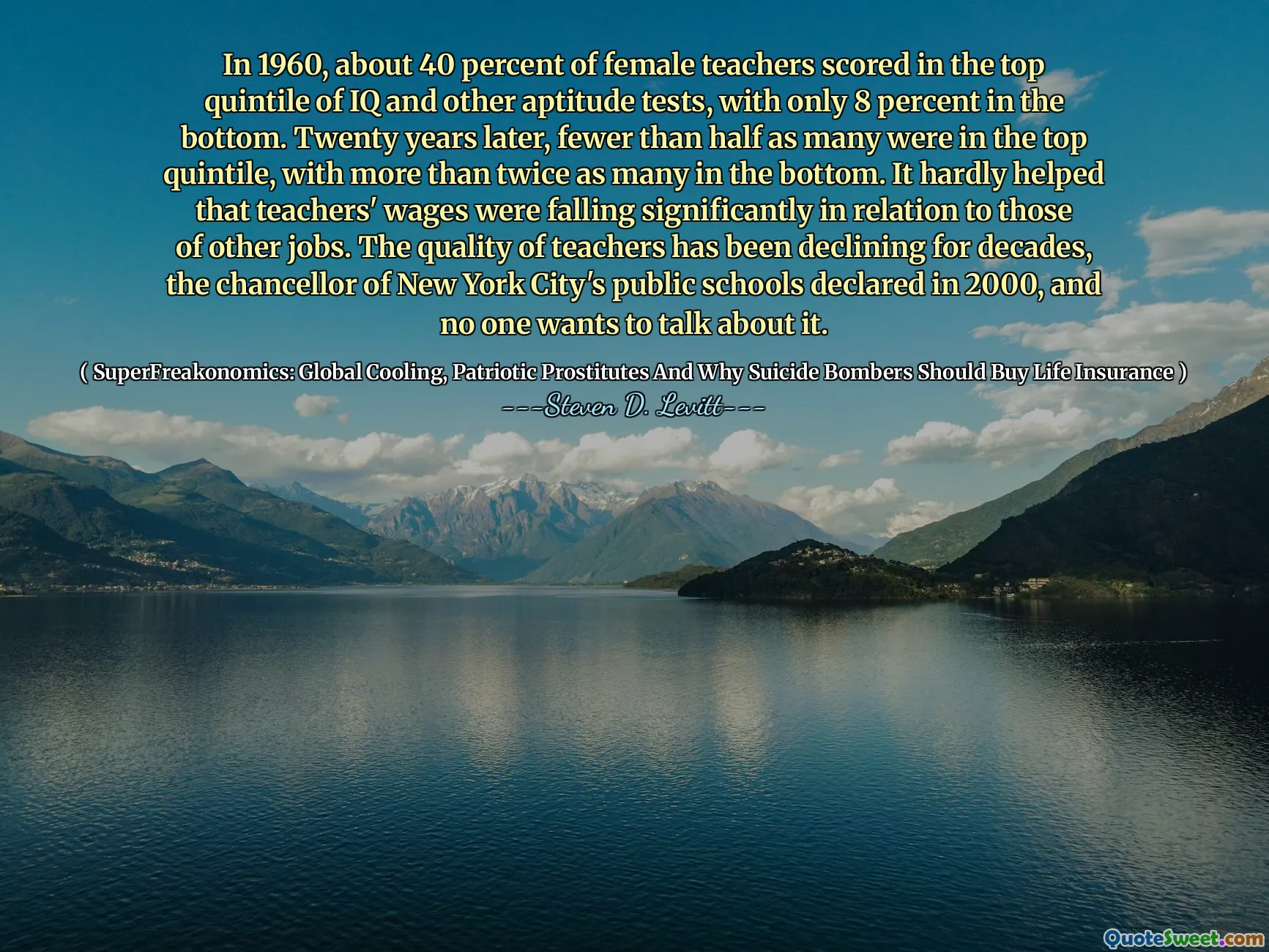
In 1960, about 40 percent of female teachers scored in the top quintile of IQ and other aptitude tests, with only 8 percent in the bottom. Twenty years later, fewer than half as many were in the top quintile, with more than twice as many in the bottom. It hardly helped that teachers' wages were falling significantly in relation to those of other jobs. The quality of teachers has been declining for decades, the chancellor of New York City's public schools declared in 2000, and no one wants to talk about it.
This quote underscores a troubling trend in the educational workforce over several decades. Initially, in 1960, a significant proportion of female teachers demonstrated high cognitive aptitude, as reflected by their scores in IQ and other tests. However, over the next twenty years, the proportion of teachers in the top talent bracket dropped dramatically, while the number in the lower brackets tripled. This decline coincides with a period during which teacher wages did not keep pace with other professions, leading to a potential de-incentivization of highly capable individuals choosing or remaining in teaching careers. The implication is profound: the decline in teacher quality can directly impact student outcomes, societal perceptions of education, and future educational policies. The quote hints at a systemic issue that has persisted unnoticed or unaddressed for decades, fueled perhaps by insufficient compensation, policy neglect, or societal attitudes toward the teaching profession. In the context of educational improvement, engaging with this data invites a broader discussion on how to attract and retain talented educators through pay, working conditions, and societal value. Acknowledging and tackling this decline is crucial for fostering an education system that meets contemporary demands and prepares students effectively for future challenges.






